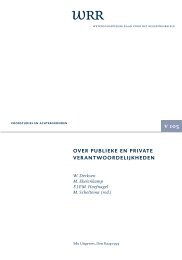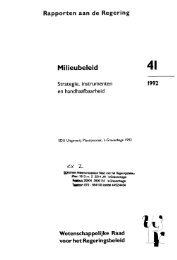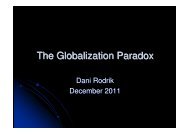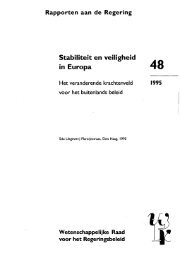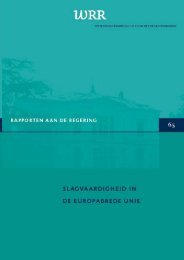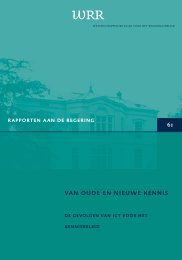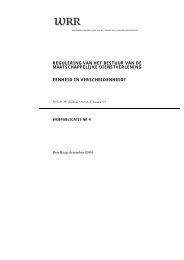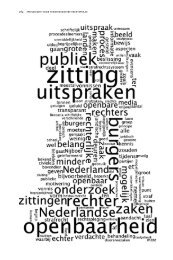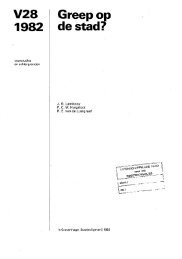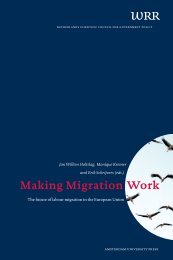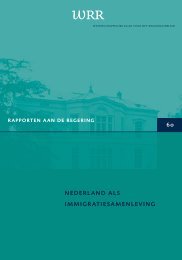De overheid als keuzearchitect? - Wetenschappelijke Raad voor het ...
De overheid als keuzearchitect? - Wetenschappelijke Raad voor het ...
De overheid als keuzearchitect? - Wetenschappelijke Raad voor het ...
You also want an ePaper? Increase the reach of your titles
YUMPU automatically turns print PDFs into web optimized ePapers that Google loves.
public policy nudges: the government as choice architect<br />
Why shouldn’t they share that data with us so we can become intelligent<br />
shoppers? Now one of the advantages of this kind of approach<br />
is that the alternative is regulation, and regulation is a never-ending<br />
game. So for example, I just read an article that in Australia a couple<br />
of years ago they regulated how much a credit card can charge<br />
merchants for using this card. They cut those fees in half. What has<br />
been happening over the last few years is that credit card companies<br />
are introducing more and more ingenious ways of charging you for<br />
things. In America we call this the whack’em game, where you knock<br />
something down and something else pops up. The kind of disclosure<br />
rules I am talking about, would end that game because all the ways<br />
they charge you would be transparent.<br />
Let me end with a comment about the financial crisis. Alan Greenspan<br />
gave a famous ‘mea culpa’ speech, where he said he was<br />
shocked. Like the character in Casablanca, he was shocked that the<br />
people in the financial markets were not paying enough attention to<br />
counterparty risks. And he was <strong>als</strong>o shocked that the smartest financial<br />
institutions in the world were viewing mortgage securities as a<br />
steal. And in his world view they were econs, super econs and would<br />
not make this kind of mistake. Here is my take on the financial crisis.<br />
I think two of the mistakes I have been talking about today are important<br />
to understanding what happened. One is bounded rationality.<br />
So the crisis started with people in places like Las Vegas, Phoenix and<br />
Miami taking out mortgages that were complicated, and which they<br />
could only really pay back if real estate prices kept going up. It is not<br />
surprising to anybody really that some people will not understand a<br />
complicated mortgage. So the bounded rationality of the borrowers<br />
is not surprising. What is surprising is that this bounded rationality<br />
worked all the way up, to the ceo’s of major financial institutions.<br />
What they did not understand is what their traders were doing. So<br />
you know, you have companies like Bear Sterns and aig and Lehman<br />
Brothers, that were essentially brought down or greatly shrunk by<br />
the behavior of a very small part of the organization that was engaged<br />
in trading practices that the ceo’s could not understand. So we have<br />
bounded rationality all the way from the bottom to the top. The second<br />
key thing that I would point to is self control problems. Again, it<br />
started the crisis with people. Most of the mortgages were refinances.<br />
19



